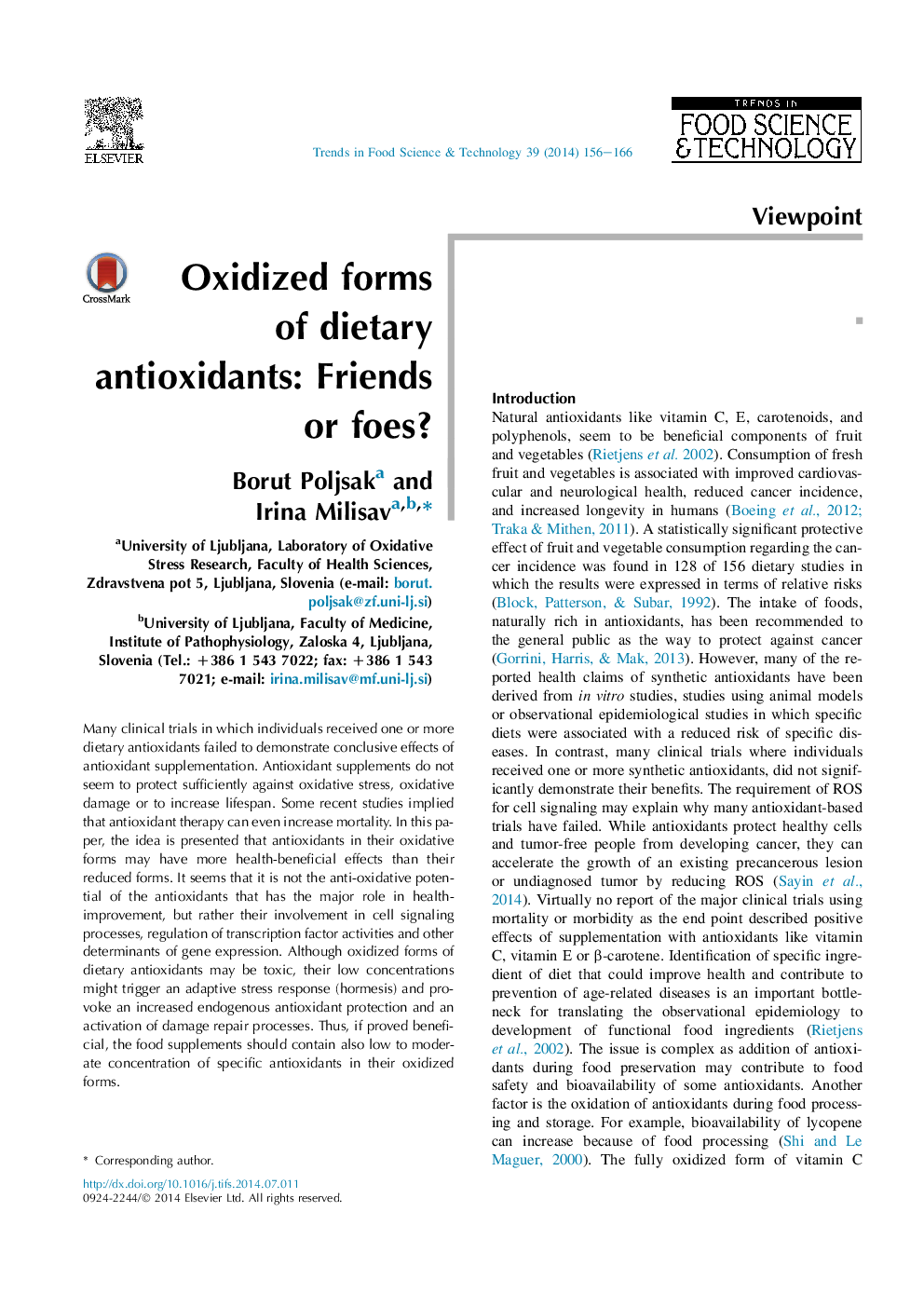| Article ID | Journal | Published Year | Pages | File Type |
|---|---|---|---|---|
| 2098645 | Trends in Food Science & Technology | 2014 | 11 Pages |
•A few oxidized forms of antioxidants were studied so far.•Oxidized forms of antioxidants may have beneficial effects.•These effects are better cellular uptake and antioxidant properties.•Oxidation of antioxidants may explain contradictory in vivo results.•The oxidized antioxidants should be fully tested for toxicity and in vivo effects.
Many clinical trials in which individuals received one or more dietary antioxidants failed to demonstrate conclusive effects of antioxidant supplementation. Antioxidant supplements do not seem to protect sufficiently against oxidative stress, oxidative damage or to increase lifespan. Some recent studies implied that antioxidant therapy can even increase mortality. In this paper, the idea is presented that antioxidants in their oxidative forms may have more health-beneficial effects than their reduced forms. It seems that it is not the anti-oxidative potential of the antioxidants that has the major role in health-improvement, but rather their involvement in cell signaling processes, regulation of transcription factor activities and other determinants of gene expression. Although oxidized forms of dietary antioxidants may be toxic, their low concentrations might trigger an adaptive stress response (hormesis) and provoke an increased endogenous antioxidant protection and an activation of damage repair processes. Thus, if proved beneficial, the food supplements should contain also low to moderate concentration of specific antioxidants in their oxidized forms.
